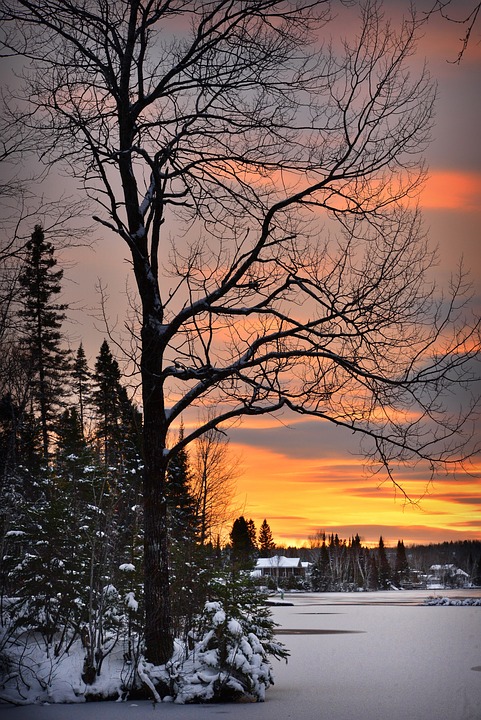Will Snow Disappear Due to Climate Change?
Introduction
Climate change is significantly altering weather patterns globally, leading to various ecological and social consequences. One pressing concern is the potential disappearance of snow, which plays a critical role in ecosystems and human activities. This analysis explores how climate change impacts snowfall, the current state of snow cover, contributing factors, future predictions, and the broader implications of diminishing snow.
Understanding Snow and Its Importance
Snow forms when water vapor in the atmosphere freezes into ice crystals, which then accumulate on the ground. Snow is vital for several reasons:
– Water Supply: Snowpack acts as a natural reservoir, slowly releasing water during warmer months, crucial for agriculture and drinking water.
– Ecosystems: Snow provides insulation for plants and animals, protecting them from extreme cold and maintaining soil moisture levels.
– Recreation: Many regions depend on snow for winter sports and tourism, contributing significantly to local economies.
The Current State of Snow Cover
Recent data indicates a troubling trend in global snow cover:
– Declining Trends: Snowfall has decreased by approximately 2.7% globally since 1973, with significant declines noted in the Northern Hemisphere’s mid-latitudes where much of the global population resides[1].
– Snow Cover Changes: The Northern Hemisphere experienced an average snow cover extent of 24.0 million square kilometers for the 2023-2024 winter season, which is below historical averages[3].
– Shifts in Timing: Snow is now falling earlier in the season but melting sooner, leading to a shorter duration of snow cover[1][4].
Factors Contributing to Snow Disappearance
Several factors are driving the decline in snowfall:
– Rising Temperatures: As global temperatures increase, precipitation is more likely to fall as rain rather than snow. This trend is particularly evident in winter, which is warming faster than other seasons[4][7].
– Altered Precipitation Patterns: Changes in atmospheric circulation patterns due to climate change affect where and how much precipitation falls. In many regions, there has been a shift towards more rain during winter months[1][4].
– Geographic Vulnerability: Areas such as the western United States and parts of Europe are experiencing significant reductions in snowfall due to their reliance on consistent cold temperatures for snow formation[6].
Climate Models and Predictions
Climate models provide insights into future snowfall scenarios:
– Projected Declines: Under high emissions scenarios, many regions are expected to see substantial decreases in natural snow cover by 2071-2100. For instance, ski areas may lose all natural snow cover entirely[6].
– Temperature Increases: Models predict that continued warming will lead to further reductions in snowpack across many regions, particularly affecting areas that currently rely on seasonal snowmelt for water resources[4][6].
Consequences of Snow Disappearance
The loss of snow has far-reaching implications:
– Environmental Impacts: Reduced snow cover affects water availability for ecosystems and human communities. This can lead to drought conditions during summer months when water from melting snow is typically available[2][7].
– Economic Implications: Industries dependent on winter sports face economic challenges as snowfall declines. Ski resorts may struggle with profitability and could be forced to adapt by investing in artificial snowmaking technologies[6].
– Social Effects: Communities with cultural practices tied to winter sports or traditions involving snow may experience significant lifestyle changes as these activities become less viable[6][7].
Mitigation and Adaptation Strategies
Addressing climate change is crucial for preserving snow:
– Reducing Emissions: Implementing strategies to lower greenhouse gas emissions can help mitigate climate change effects on snowfall.
– Adaptive Measures: Communities reliant on winter tourism can explore diversifying their economies or investing in infrastructure that supports year-round activities.
FAQs
1. How does climate change specifically affect snowfall?
Climate change increases temperatures, leading to more precipitation falling as rain instead of snow.
2. Are there regions where snowfall is expected to increase despite climate change?
Some areas may see increased snowfall due to localized weather patterns; however, these are exceptions rather than the rule.
3. What are the implications of reduced snow cover for wildlife?
Reduced snow cover diminishes insulation for wildlife and alters habitat conditions crucial for survival.
4. How do scientists measure changes in snow cover over time?
Changes are monitored using satellite imagery and ground-based measurements that track snow extent and depth.
5. What can individuals do to help combat climate change and preserve snow?
Individuals can reduce their carbon footprint by using public transport, conserving energy, and supporting sustainable practices.
6. How does snow impact the local economy, especially in winter tourism?
Snow provides essential conditions for winter sports; less snowfall leads to fewer tourists and reduced income for local businesses.
7. What are the potential long-term effects of losing snow on global water supply?
A decrease in seasonal snowpack threatens freshwater availability during warmer months when demand peaks.
Conclusion
The evidence suggests that climate change poses a significant threat to snowfall globally. Addressing this issue requires urgent action to mitigate climate impacts while adapting our communities and economies to changing conditions. Ensuring the future of snow is essential not only for ecological balance but also for maintaining cultural practices and economic stability linked to winter activities.

Kyle Whyte is a notable scholar and professor at the University of Michigan, holding positions such as the George Willis Pack Professor in the School for Environment and Sustainability and Professor of Philosophy. Specializing in environmental justice, his work critically examines climate policy and Indigenous peoples’ ethics, emphasizing the nexus between cooperative scientific endeavors and Indigenous justice. As an enrolled Citizen Potawatomi Nation member, he brings a vital perspective to his roles as a U.S. Science Envoy and member of the White House Environmental Justice Advisory Council. His influential research is supported by various prestigious organizations including the National Science Foundation, and disseminated through publications in high-impact journals. Kyle actively contributes to global Indigenous research methodologies and education, with affiliations to numerous institutes and societies dedicated to traditional knowledge and sustainability. Recognized for his academic and community engagement, Kyle has earned multiple awards and served in various visiting professorships. His efforts extend to leadership positions on boards and committees focused on environmental justice nationwide.
